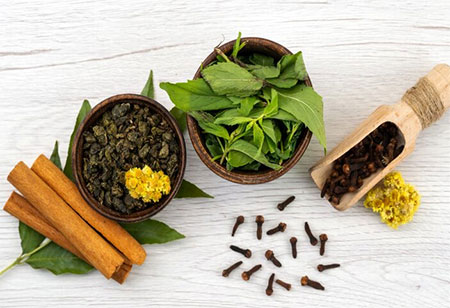Hima P M, Assistant Editor

Herbal fraudulent including claiming about false herbal ingre- dients and misleading claims on curing of various diseases are not new. The herbal fraudsters range from local sellers on street to some brands which have almost spread their wings across the country. During Covid19 period many unapproved herbal products were sold through social media platforms in our country making false claims. Recently, in this 2023, the brand Patanjali Ayurveda got warnings and penalties from Supreme court of India for false & misleading advertisements and claims about their herbal products.
Inorder to manufacture and sell any Ayurvedic product, license from AYUSH is mandatory in India. The product has to meet ‘Standard Quality’ which can be defined as the rate to which a medication or cosmetic should fulfill the standards set for sale in the Second schedule of Cosmetic Act, 1940. These ensure the safety and efficacy of products including supplements and body care. AYUSH Ministry of the state government grants the AYUSH licence and the licence is mandatory for all businesses dealing in Ayurvedic, Unani, Siddha, herbal, and homeopathy, drugs / cosmetics, and other related treatments.
“During the Covid-19 pandemic, we have seen a very big shift of the consumers towards the herbal system of medicine of Unani and Ayurveda and this has been like a shot in the arm for these systems of medicine”-- Abdul Majeed & Asad Mueed, Chairman & Managing Trustee, Hamdard Laboratories
Regulations on Ayurvedic Product issues by FSSAI
Inorder to use FSSAI emblem and the term ‘Only for Dietery use’ the manufacturers of herbal items need to be FSI members.
 How To Obtain License
How To Obtain License
Obtaining FSSAI license is mandatory, as they are in charge of food safety rules and regulations. So that for any oral herbal product FSSAI basic registration is mandatory.
There are three Different types of Ayush License.
A Complete License to Produce: The entity with this license owns a production facility for which the following rules are mandatory.
AYUSH Retail & Wholesale License:
AYUSH Loan License:
Manufacturing & Production Done Under Contract of Third Party
According to the law provision of this license, a product can be created under the auspices of the manufacturing license held by a third party manufacturer. As you are not manufacturing anything, manufacturing license or facility to sell goods are not needed. For example; Chawanaprash is manufactured in the same place for more than one brand.
Increasing Demand & Opportunity
With herbal products being a trend, the demand for herbal medicines and cosmetics have increased both in developing as well as developed countries, especially as nutritional supplements, personal care, and are also used for weight reduction, gastrointestinal health, cardiovascular health, skin health and fitness. This has resulted in emergence of a number of herbal product manufacturers and wellness centres. As a part of promoting holistic medical tourism the government of India is providing a plenty of space for the growth of such institutes. As a result there is a need of implementing strict guidelines inorder to prevent frauds and ensure safety. Companies who sell herbal products have to get various license from Food Safety & Standards Authority of India (FSSAI) and AYUSH to ensure quality and stability for such products. The Covid pandemic has evidently brought a positive impact on the industry. At the same time Covid period also lead to many false claims and emergence of many social media herbal product sellers with no guarantee. Hence always be cautious about the labels of the products while buying.